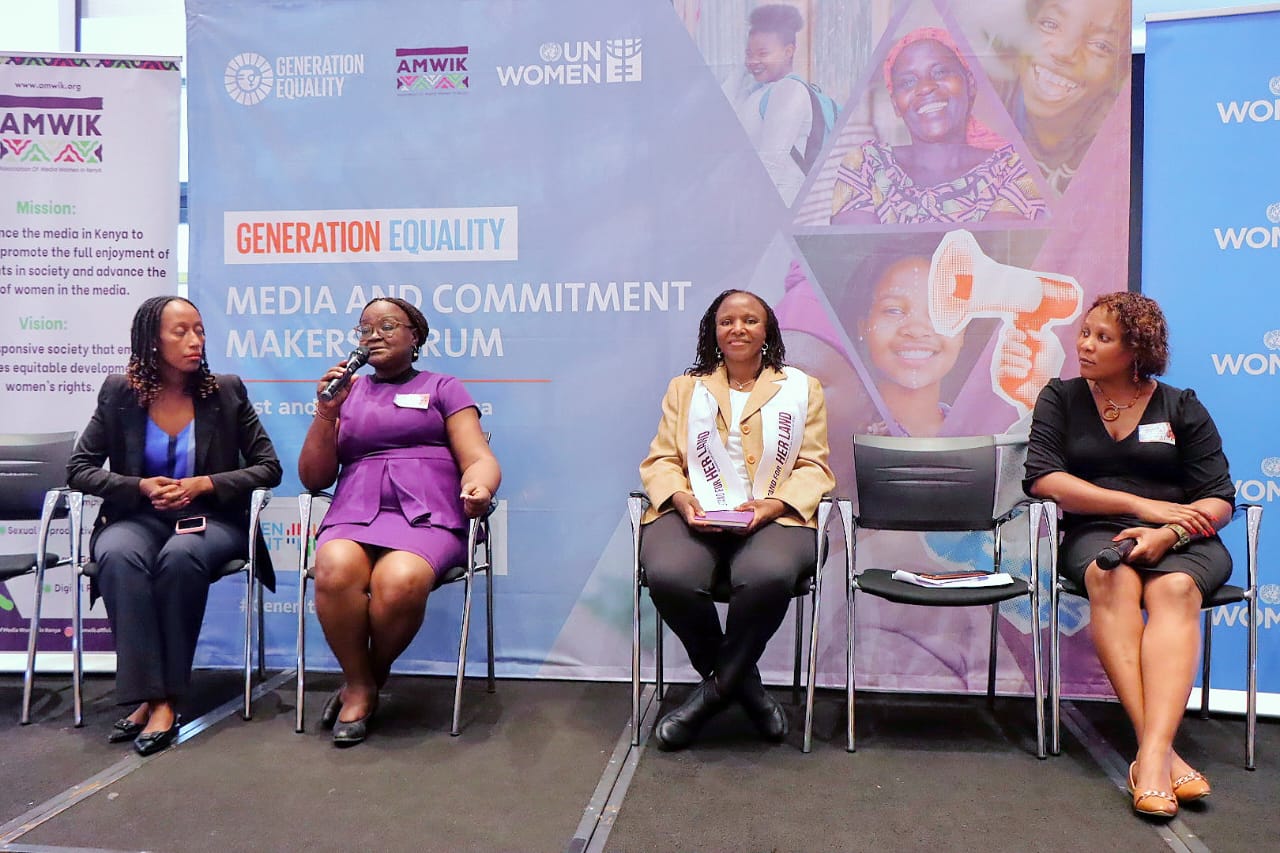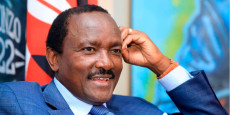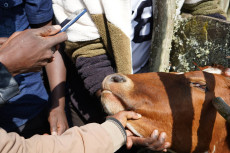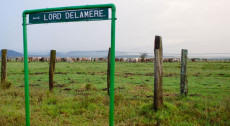- Women continue to confront systemic resistance and patriarchal norms that undermine their interests and capabilities. From boardrooms to newsrooms, and in land and agriculture, women are frequently sidelined, underrepresented, and overlooked.
Gender equality remains elusive for women in a male-dominated society, where their voices and efforts to secure a place at decision-making tables are often undermined by opposing forces. Despite years of advocacy, progressive constitutional provisions, and the promise of the two-thirds gender rule, true equality remains more of an aspiration than a reality.
Women continue to confront systemic resistance and patriarchal norms that undermine their interests and capabilities. From boardrooms to newsrooms, and in land and agriculture, women are frequently sidelined, underrepresented, and overlooked.
At the recent Generational Equality Media and Commitment Makers Forum, Quinter Mbori, Executive Director of the Association of Women in Media Kenya, lamented that for many women, gender parity feels like a distant dream.
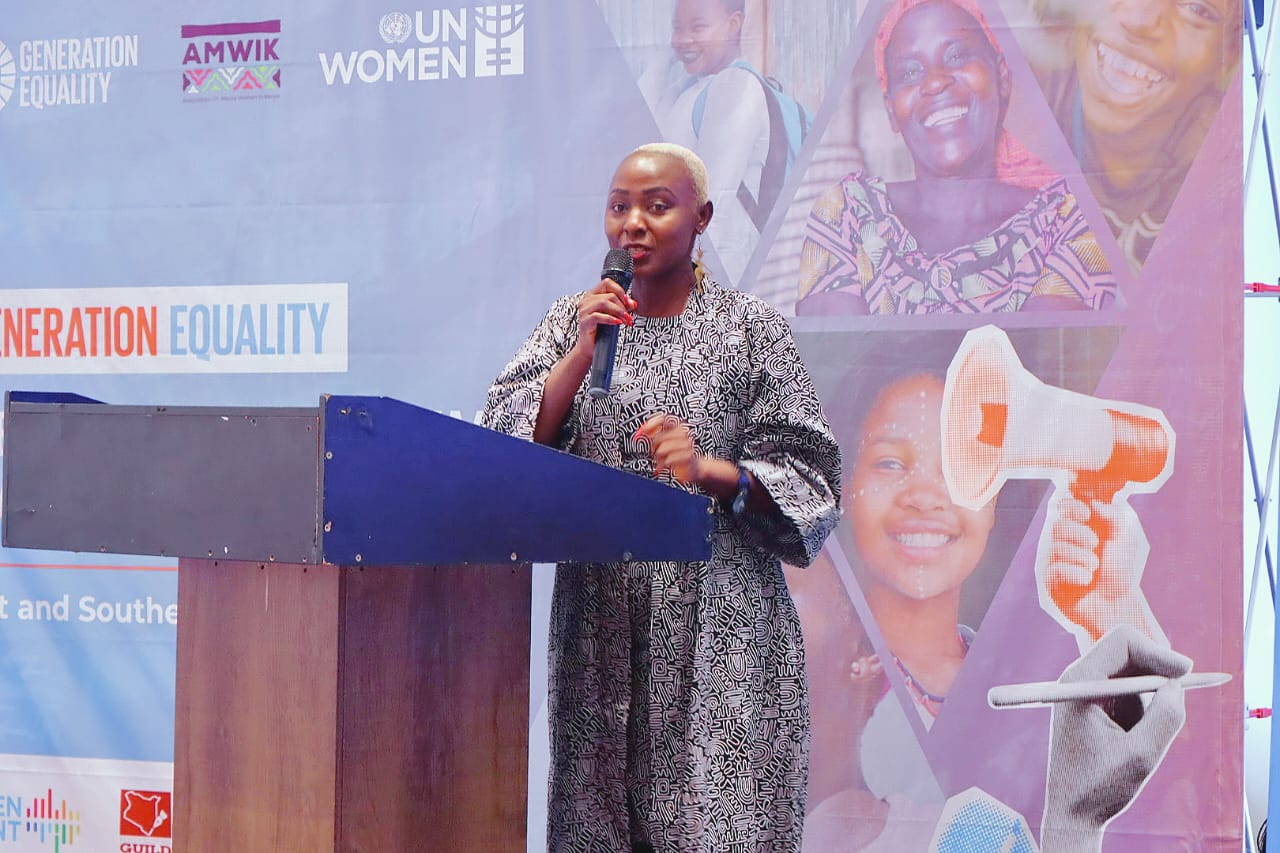
Read More
"Women are the majority taking up to 50.2% of the population, yet we still suffer underrepresentation, it will take us 300 years to achieve gender equality if we do not come together as women to fight for generational equality,” she stated.
In the media industry, entrenched patriarchal structures hinder the advancement of young female journalists. Ellen Wanjiru, Editor at MediaMax Network, shared her journey of resilience and determination in overcoming these barriers.
“The media industry is predominantly patriarchal. As a young journalist, I was often assigned 'soft' stories and lifestyle segments, while my male colleagues received front-page political scoops and investigative reports. My focus and determination fueled my passion for journalism and helped me envision a future in leadership roles,” Ellen reflected.
Today, as an editor, Ellen uses her influence to mentor young female journalists, ensuring they have equal opportunities to tackle hard news and achieve gender parity in the industry.
During the panel discussion, Ellen expressed concern over women's struggle to balance work and family life, which often leads to doubt and reluctance to participate in public forums.
“Finding women to speak on panels is challenging; many have to prepare their children for school, making it difficult to attend. We refer to these events as 'manels' because they are dominated by men. While men readily engage in discussions, women often hold back due to societal doubts about their capabilities,” Ellen noted.

Outside the media, women face significant stigma, particularly regarding land ownership and economic empowerment. Esther Muiru from the Stand for Her Land Campaign highlighted the ongoing challenges women encounter in securing land rights.
“Our goal is to ensure every woman has her land rights, but we still struggle to achieve equal legal rights to land and housing. We are far from realizing true equality,” Muiru lamented.
She emphasized their commitment to bridging the gap between legal provisions and the actual realization of women's land rights, aiming to promote sustainable land management, women's economic empowerment, climate justice, and gender justice.
Cecilia Maundu, through her podcast Digital Dada, seeks to amplify the voices of women navigating the digital space, particularly those affected by cyberbullying, doxxing, and tech-facilitated gender-based violence (TFGBV). She highlighted the vulnerability of women online and the emotional toll of harassment, providing education on overcoming these challenges and understanding legal frameworks addressing TFGBV.
The commitment forum brought together various organizations championing generational equality, including AMWIK, UN Women, Nala, the Kenya Editors Guild, and the Media Council of Kenya, all working towards a shared vision of achieving generational equality.

